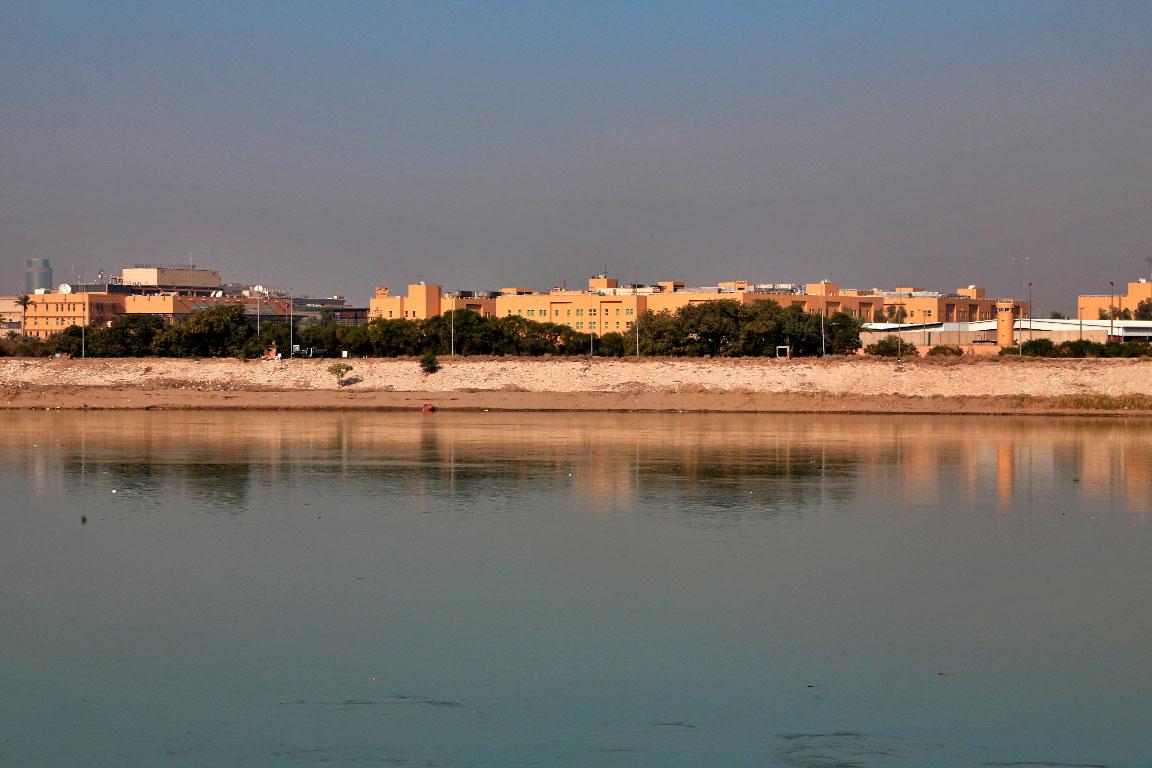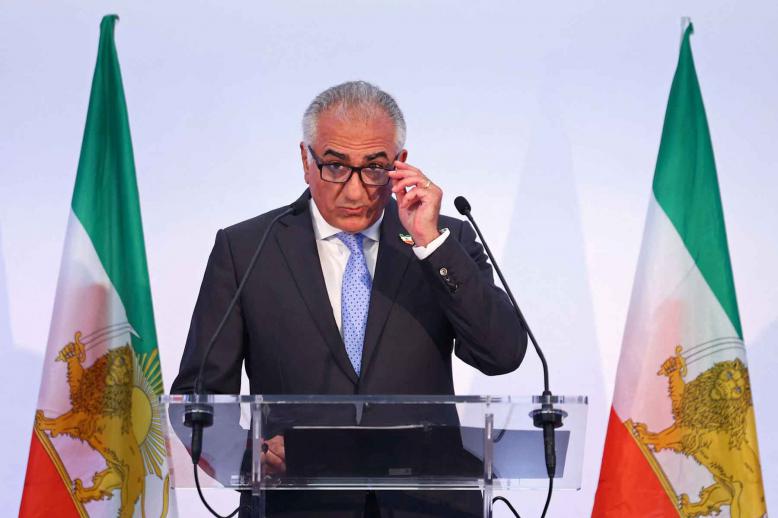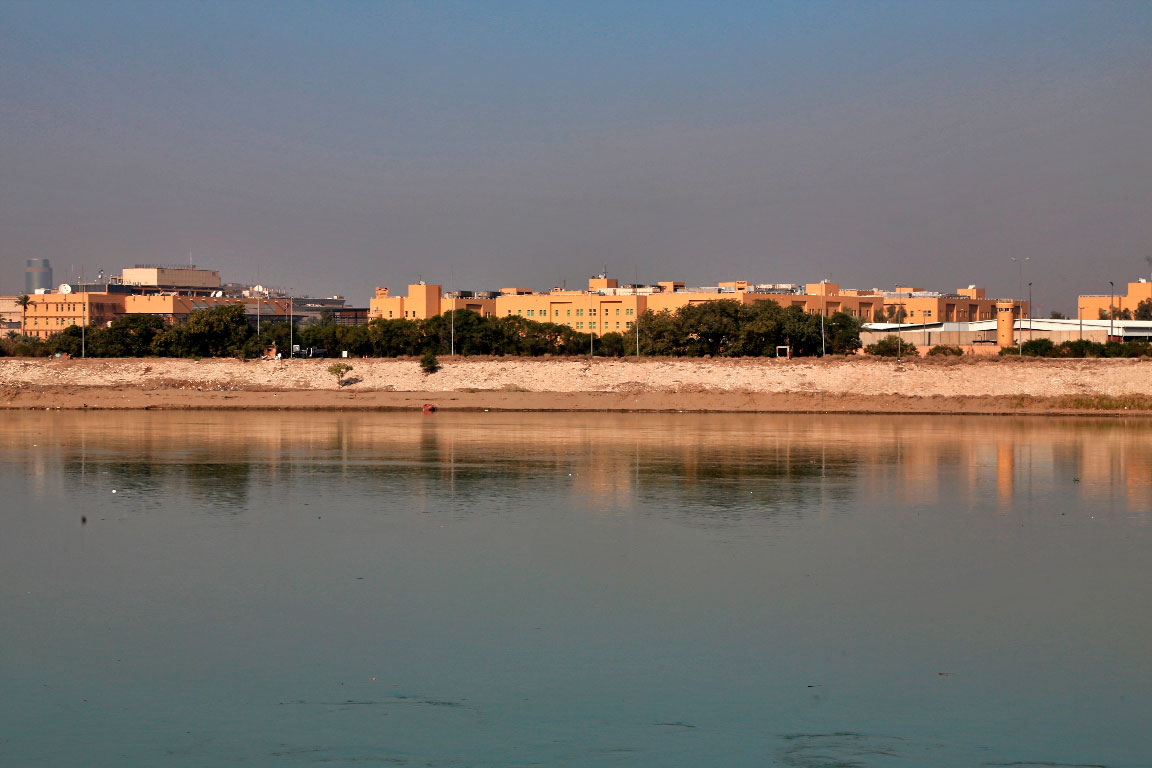Rockets hit Iraq's Green Zone as US-led forces leave base
BAGHDAD - Two rockets slammed into the Iraqi capital's high-security Green Zone early Thursday, hours before US-led forces were set to pull out of a second base in the country.
Some 7,500 troops are in Iraq as part of the US-led coalition helping local troops fight jihadist remnants, but those numbers are being significantly drawn down this month.
The alliance is temporarily bringing some trainers home as a precautionary measure against the coronavirus pandemic and is also leaving other Iraqi bases altogether.
Those bases and foreign embassies, particularly the American mission, have been targeted in more than two dozen rocket attacks since late October by Iran-backed militant groups, that have prompted fears of a proxy war on Iraqi soil between the US and Iran.
Before dawn on Thursday, two rockets punched into an empty square near an Iraqi security headquarters in the Green Zone, where government buildings and foreign embassies are based, the Iraqi security forces said in a statement.
An Iraqi security source told AFP news agency the intended target appeared to be the US embassy, a sprawling compound a few hundred metres further south on the banks of the Tigris.
Sirens could be heard going off shortly afterwards in the Green Zone.
There were no reports of casualties, but other attacks have been deadly.
US-led coalition withdraws
Earlier this month, two US military personnel and a British soldier were killed in a rocket attack on the Taji airbase further north, which was hit again two days later.
The 5,200 US troops stationed across Iraqi bases make up the bulk of the coalition force helping hunt down Islamic State group sleeper cells across the country.
Iraq declared IS defeated in late 2017, and the coalition is now implementing plans developed last year to consolidate its troop presence across the country.
Around 300 coalition troops left the western Qaim base in mid-March, handing it over in full to Iraqi troops.
On Thursday, more troops were set to leave the northern Qayyarah air base, where US-led troops in 2017 had helped Iraqis plan out the fight against IS in nearby Mosul.
In the coming weeks, they will also leave the expansive base in Kirkuk.
Rockets have rained down on Qayyarah and Kirkuk in recent months, with one late December attack killing a US contractor stationed in Kirkuk.
The US has blamed those attacks on Kataeb Hezbollah, an Iran-backed group within the Hashed al-Shaabi military network.
The Hashed has been formally integrated into the Iraqi state's security forces but more hardline groups continue to operate independently.
'Same actors'
This month's attacks, however, have been claimed by a previously unknown group identifying itself as Usbat al-Thairen (League of the Revolutionaries).
In online videos set to music, masked men carrying weapons rail against the "American Satan" and pledge to avenge "victims" of US air strikes on Iraqi forces.
The coalition, however, expects the group is an amalgamation of more well-known, anti-US groups.
"It's the same old actors, and they're organising themselves slightly differently," a senior US-led coalition official told reporters.
The global alliance has simultaneously been redeploying training forces who had been coaching Iraqi troops.
Trainers amount to a third of the total coalition force.
British, French, Australian and Czech troops who were coaching Iraqi counterparts were being temporarily sent home as Baghdad had put a hold on training operations to prevent the spread of COVID-19.
At least 29 Iraqis have died from the respiratory illness and nearly 350 other cases have been confirmed, according to the Iraqi government.
But there are fears the real number is much higher, as only around 2,000 of Iraq's 40 million people have been tested.
A spike in cases could overwhelm the country's dilapidated health system, ravaged by years of conflict and slim investment by government authorities.






